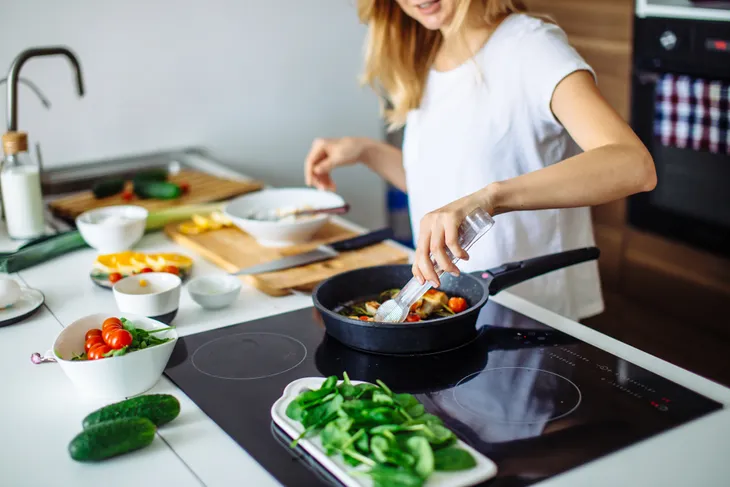Today’s busy lifestyles make us believe there’s no time to cook proper meals from scratch—and why do that when processed food promises us convenience and nutrition on the packaging? However, buying pre-seasoned and oven-ready foods could contain some ingredients that may be unnecessary, while creating a lifestyle that may be less healthy.
Making food from “scratch” doesn’t mean you have to go out and hunt your own food or harvest your own vegetables—they can still be store bought components that require you to take more time to prepare and encourage smarter shopping at the grocery store, as Huffington Post points out in a 2014 article. Here are five reasons to start taking your time when preparing meals…
Cooking is Good for Your Brain
Popping a store-made frozen pizza into the oven for 20 minutes is sure easy, but all it really requires is for you to heat up the oven and take out the pizza when the timer goes. Meanwhile, you’re staring at your phone or watching television and not doing anything to advance your kitchen skills.
Not only will food made from scratch often have brain-boosting properties, it will also require you to be creative and to think through recipes, which help build neural pathways in the brain. In fact, learning to cook could have led to the human brain growing from its prehistoric roots and developing cognitive skills and culture, according to a 2012 UK Daily Mail article.
Food from Scratch is Generally Healthier
Processed foods are those that have been prepared in some kind to extend the shelf life of foods in the grocery store, altering its raw form. Many times, high levels of sodium are added to processed foods as well as food in restaurants, according to the Centers for Disease Control and Prevention (CDC).
The CDC notes that almost every food at the store with a “Nutrition Facts” label has been processed ahead of time in some way, including those that are “all natural”. The CDC suggests buying fresh meats from the store counter or a farmer’s market, while the same goes for veggies. Seasoning your food with spices instead of salt is also a good move, noted the centre.
Cooking at Home can be Cheaper
Many people would have you believe that “eating healthy” is more expensive, but this may be a misnomer as they’re often referring to “health foods” that are pre-prepared at the store. Preparing the food yourself can eliminate some of the costs of having it basically prepared for you.
Looking at fast food as an example, the popular website Mother Jones claims that a processed burger and fries for a family of four cost twice as much as a home-cooked chicken and potatoes meal. While this is not true for every meal (for example, a lasagna is often cheaper bought frozen than to buy every ingredient separately) it’s a good rule of thumb to keep in mind.
Cooking is an Opportunity for Bonding
Having trouble keeping your kids entertained while you try to prepare dinner? This is generally one big reason why parents turned to ready-made foods that take less time and are “tastier” for their children. Trying new foods you’ve created can sometimes be a bust when kids turn their noses up.
The Huffington Post said in a 2012 article that cooking is a great chance to involve your children in the meal process. Not only can your kids learn to help you look for healthier ingredients at the grocery store, grabbing a kids’ cookbook and preparing some simpler dishes is fun and will motivate children to eat healthier.
Buying Raw Foods is Good for Community
When you’re shopping at a grocery store, you’re often putting money into a big corporation that is satisfying the needs of its shareholders. If the store is independent, or you’re buying from a farmer’s market or butcher, then you’re pouring money into the local economy.
A 2009 TIME magazine article notes that buying local not only keeps money reinvested in the community, it also identifies gaps in the independent marketplace that are being filled by chain stores. The article also noted that while big stores often have better prices than small businesses, the employment opportunities and community bonding often makes up for it.








